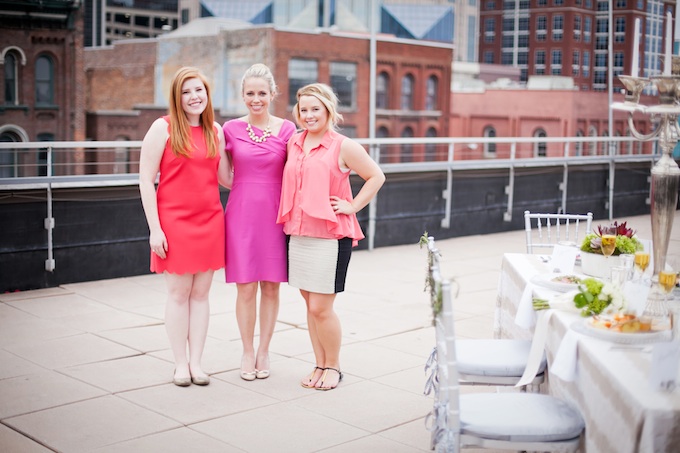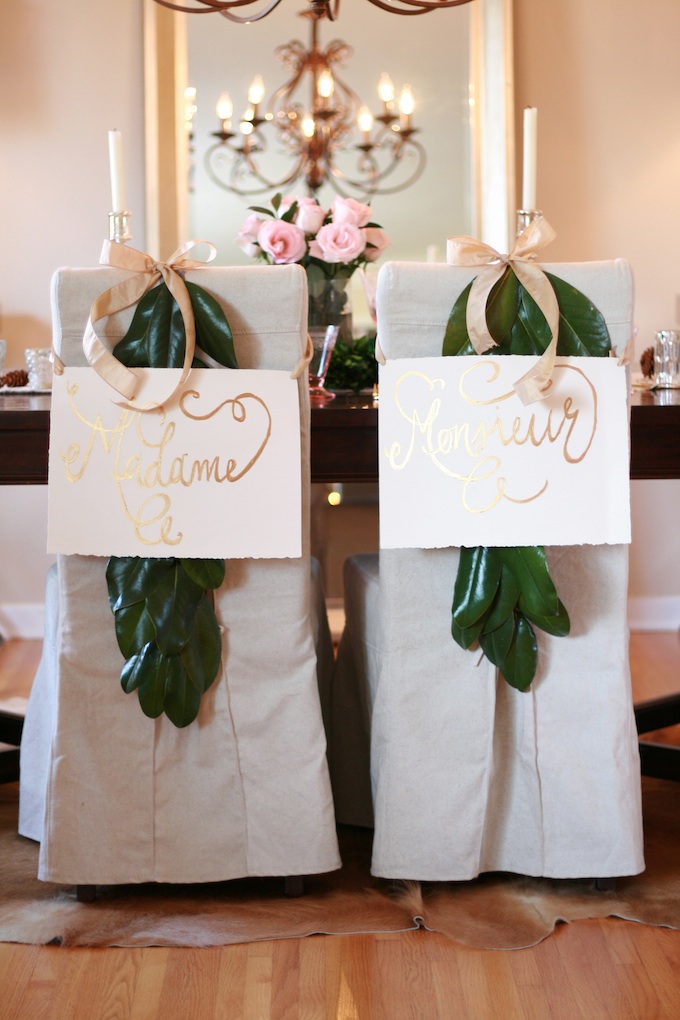
As I mentioned in my Engagement Basket post back in February, I am in the midst of planning my sister’s wedding while also serving as the Maid of Honor (busy busy!).
That is why I was also so excited when Commerce Street Events reached out to me about a partnership with H&T (we have a few fun things in the works – stay tuned!).
Commerce Street Events is an event planning company based out of Nashville. They specialize in events on every scale – galas, corporate meetings, dinner parties and of course, WEDDINGS! They handle everything from concept and design to execution so that their clients can fully enjoy “toast” (or celebrate) any occasion.

The ladies of CSE and I got together a list of wedding FAQs that often come up when planning and share our answers below. Like me, they are a little superstitious! If you’re newly engaged or in the midst of planning, hopefully these will help too.
Q#1: For CSE, What are the differences between hiring a day-of coordinator vs. full service wedding planner?
CSE: Day of Coordinator – Pros: Day of coordinators are generally less expensive than full service planners. The bride can plan everything on her own, and not worry about another person assisting in the process. Cons: Day of coordinators may not know the couple very well. They may not understand the bride’s vision as well. Also, they also may not be acquainted with the vendors involved.
Full Service – Pros: The bride has an advocate during the entire process for questions involving etiquette, vendors, and logistics. There is less stress involved for the bride and she can enjoy the season of being engaged. Cons: Full service planners will cost more. Their vision may be different than the brides for the wedding.
Q #2: How far in advance should Save-the-Dates go out vs. actual invitations?
CSE: Save the Dates should go out at least three months before the wedding. We suggest sending earlier if you have out of town guests. Formal invitations should be sent six weeks in advance. If your wedding falls during a holiday season, you may need to alter your timeline to allow more time.
BAC: They are the experts! But I think out of town guests (since I normally am one) enjoy having more notice.
Q#3: For CSE, What is the proper way to do the wording of a wedding invitation? How do you do this with divorced parents, etc?
CSE: This is always a tricky situation. The traditional wording for divorced parents if they are hosting the wedding together is the mother’s name first then the father’s name with a line between the two. A non traditional way to handle the wording is use the term “together with their families”. I personally love the “together with their families” wording. It is a celebration of both families and it not putting the attention on the parents but rather on the couple.
Q#4: What is the proper etiquette for giving a “plus one”? How you decide who to give this to?
CSE: Guests that are engaged or married should obviously be given a plus one for their spouse or fiancé. If you have the space and means to add plus ones for everyone, then we suggest doing so. However, you should allow $100 for food and beverages per person. If you are limited on space and means, the cut off we normally suggest is serious relationships only.
BAC: I think CSE has this covered. Although I would add, anyone in a wedding party (bride or groom side) should be given a “plus one” regardless of relationship status.
Q.#5 How do you determine children at a wedding? Is it appropriate to cut off at a certain age or what are the best guidelines when inviting family and friends who have kids?
CSE: Technically, unless the child’s name is included on the inner envelope they are not invited. It is only proper to include the parent’s names on the outer envelope. The best way to spread whether children are invited to a wedding is word of month. If it is an evening wedding, guests should assume children are not invited enjoy a nice night away. The ages allowed should be determined by the couple and the type of wedding. If a bride includes small children on her guest list or has members of the bridal party with children, we suggest hiring a babysitter for the day.
BAC: I think it’s also important to remember, if you have a large family with lots of cousins and babies, sit down and think about how you want to handle that and the guest list numbers.

Q# 6: What are the general rules for how to decide who to invite to a rehearsal dinner (aside from the wedding party)? Out of town guests?
CSE: This all depends on the budget, but there are several options. If you have multiple out of town guests coming to the wedding, we suggest a welcome dinner instead of a traditional rehearsal dinner. There is also the option of doing a traditional rehearsal dinner (bridal party and close family only) then inviting out of town guests to a cocktail hour before or after the dinner. If the budget allows, we always suggest inviting out of town guests to the rehearsal. These guests are spending money to come to your wedding and it very hospitable to invite them.
BAC: I love the idea of a “welcome party”. I’ve attend several weddings as an out of town guest over the past few years and even if I was not invited to the rehearsal dinner, this party was something that took place post dinner and I found to be extremely inviting and fun!
Q#7: What are some creative ways or suggestions when you don’t want to have a sit down dinner?
CSE: We love stations, this allows the chef to get very creative with design and for the guests to experience different foods. Chef’s tables are a unique idea for brides who are food lovers and want the chef to be more involved. For a more causal experience, some brides opt for food trucks.
BAC: Food and presentation at any event is obviously a favorite of mine. I think you can get creative with heavy passed bites during cocktail hours and family style dinners too.
Q #8: What should be at the top of your list when registering? Can you only register for “household” items or what are the rules here?
CSE: For registries, anything goes in today’s weddings. Since people are getting married later in life, some couples already have their homes and kitchens furnished. Several of our brides in the past have asked for money for honeymoons or will ask for donations for their favorite charity in lieu of traditional registries. As far as trends go, it is very common to include the groom’s wants and needs in the registry not just fine china. We have even had couples register at target and sporting good stores. We also ask our brides to include several price points in their registry to accommodate all of their guests.
BAC: Again, CSE is the expert here. I think all the above is true and it’s probably important to have a few options in terms of stores to fit the needs of all your guests and their gift budgets.
Q#9: When it comes to monograms and their usage – what is “bad luck?” What are the traditional rules for this before, after and during the wedding? Invites, programs, showers, robes during the “getting ready?”
CSE: Traditionally, couple monograms are not appropriate until after the couple is officially married. This means you can have couple monograms at the reception, but not at the ceremony. However, in today’s wedding world, there are not as many rules. If the bride is comfortable with using a couple monogram and is not superstitious it is not as much of a faux pas. Personally, I am not a fan of bad luck, especially on such an important day so I would go the traditional route.
BAC: Agree on this one! No new monogram until marriage – post ceremony only is my opinion. I think that “monograms and mimosas” bridal showers are wonderful – just don’t use any of those gifted items until after the “I Dos”. I’m a little old fashioned/opinionated on this one so no worries, I know others who strongly disagree.
Stay tuned tomorrow for part two featuring questions on your maids, wedding attire and new wedding trends!
{All Images via Commerce Street Events}











Pingback: Hosting and Toasting Feature | Commerce Street Events